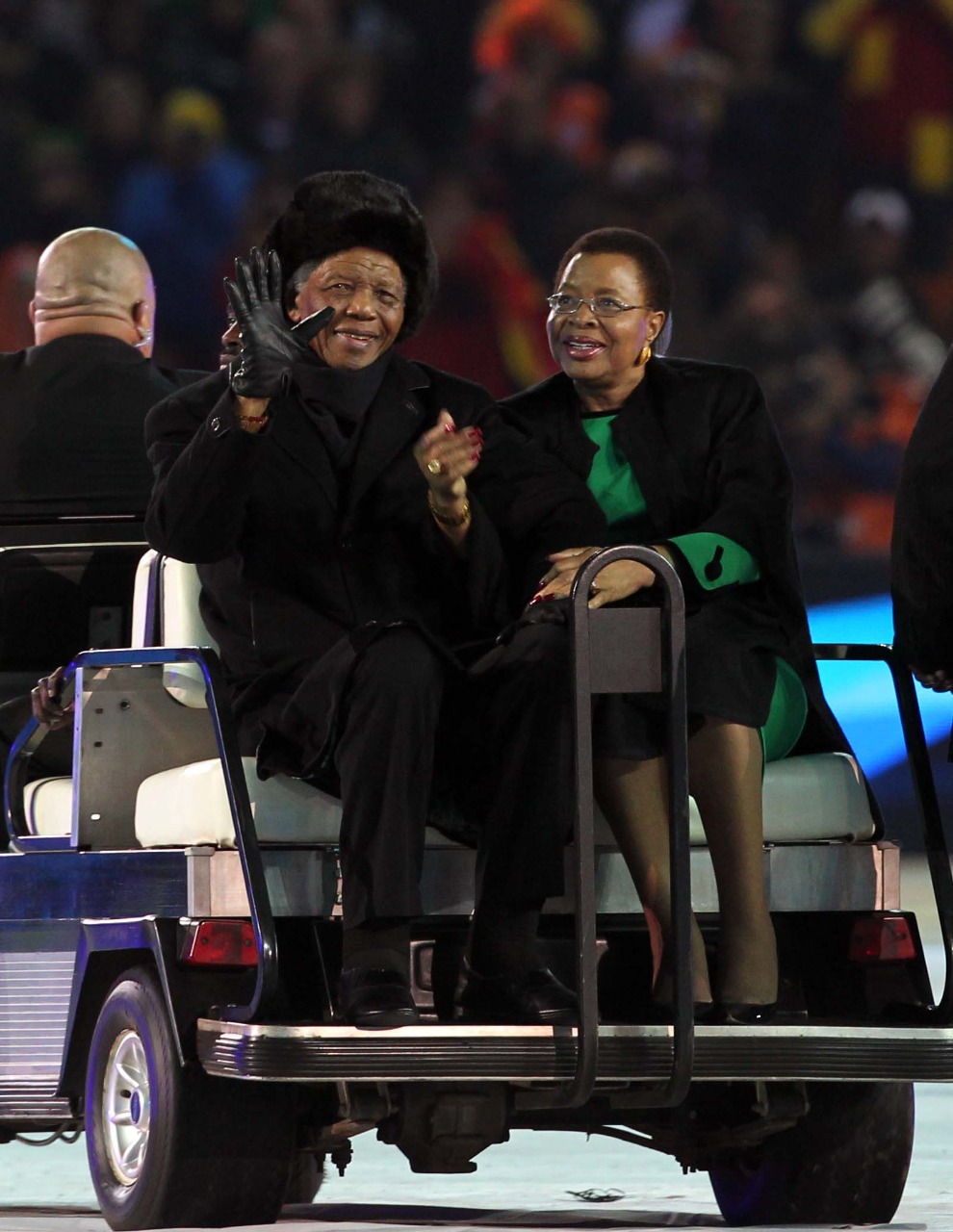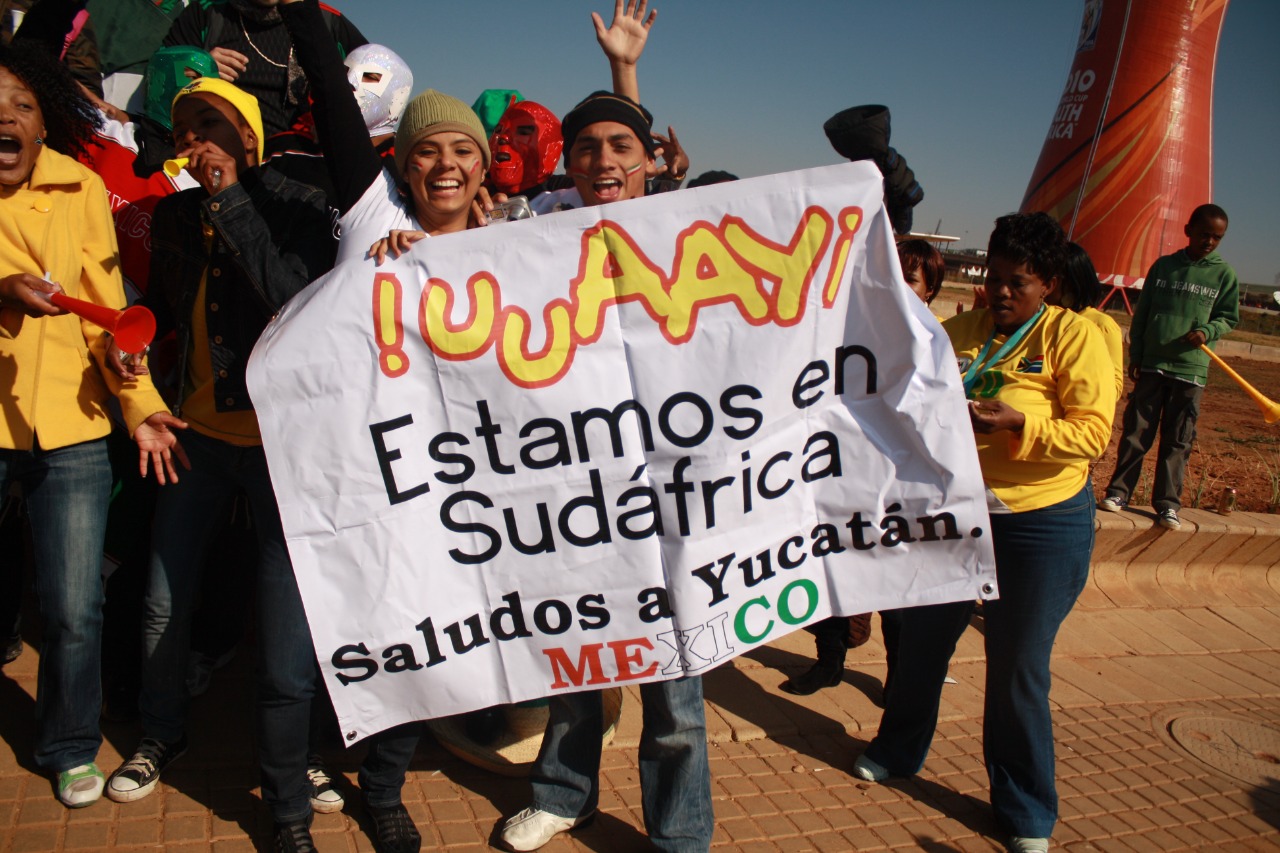ترجمة: بهاء الدين سيوف
من الصعب ألا تجد صحفيا يحلم بالذهاب لتغطية أحداث كأس العالم لكرة القدم، خاصة إذا كان شغوفا بهذه الرياضة. إنه الحدث الرياضي الأكبر في العالم، لكن وجودك في بلد مونديالي ومشاهدتك أفضل المنتخبات العالمية وأشهر اللاعبين واقعا أمامك ليس مدعاة للبهجة فحسب، بل إن ذلك يلقي على عاتقك مسؤولية اجتماعية، هي مسؤولية كل صحفي، أن تحكي وتخبر عن كل الموضوعات التي تهم الناس والمجتمعات، لا أن ينحصر عملك في إضفاء الرومانسية على ذاك الحدث الرياضي الرائع.
قد يمثل كأس العالم قطر 2022 هذا التحدي أمام الصحفيين، تماما كما كان ذلك في مونديال روسيا 2018، البرازيل 2014 وجنوب إفريقيا 2010. هذه بلدان تنطوي على الكثير من القضايا المثيرة للاهتمام الصحفي، على عكس ما كان في كوريا واليابان 2002 وألمانيا 2006، فهي ليست مثل البلدان التي يتفشى الفقر في كل زاوية منها، أو تلك التي توجه إليها انتقادات بشأن حقوق الإنسان.

تجربة مثرية ومثيرة
حظيت بفرصة تغطية فعاليات كأس العالم 2010 في جنوب إفريقيا. بالتأكيد فإن السفر إلى الجانب الآخر من العالم كان تجربة مثرية، يقدم لك دروسا لن تتعلمها في أي مدرسة، كما أن فكرة السفر إلى حيث لا يرن هاتفك الجوال باتصال من أحد هو أفضل ما يمكن أن يحدث للمراسل الصحفي. واجهنا الكثير من المصاعب في تلك المهمة، كانت أولها معاناة برد الشتاء الجنوبي، ذاك البرد وتلك الأمطار التي لم نعتدها نحن القادمين من بلدان ما فوق خط الاستواء. كان عليك أن تخرج لتغطية فعاليات المونديال من المدرجات في الهواء الطلق، بقفازتين في اليدين، قد تستطيع فعل أي شيء سوى أن تخرج أصابعك للكتابة هناك.
اعتياد أطعمة غريبة كان أيضا من مصاعب العمل الصحفي هناك. كثير من الزملاء المراسلين تعرضوا لوعكات صحية بسبب تناول الطعام في البلدات الصغيرة مثل "بولوكوان" حيث لعبت فرنسا والمكسيك. نصُّ التقرير الذي أعددته عن تلك المباراة كتبته وأنا ألتهب بالحمى وأتصبب عرقا، مع اضطرابات فظيعة في المعدة، ليس باستطاعتك أن تقول ببساطة إنك مريض، عليك أن تواصل إرسال الأنباء، وأن تسلم النصوص باستمرار لأن سيل المعلومات لا يتوقف.
كتبت أيضا عن العنصرية، فعلى الرغم من أن التاريخ يخبرنا بأنها انتهت منذ سنوات، فإن الحقيقة أن جنوب إفريقيا البيضاء هي التي تهيمن هناك.

بالنسبة إليّ كانت مهمتي الأساسية متابعة أداء المنتخب الوطني، وبالتأكيد رصد المنتخب الذي سيفوز بكأس العالم، لكن ولأن "PROCESO" مجلة أسبوعية تختص بالسياسة، لم يكن بمقدوري إعداد سجلات أو سرديات لمجريات المونديال أو لما يدور في محيط الملاعب مع الجماهير. كان عليّ أن أتحدث أكثر عن انعدام الأمن في الشوارع وحتى في داخل الفنادق، صحفيون وسياح يتعرضون للسرقة في غرفهم الخاصة، أعمال جنائية وإفراط في العنف أحيانا، حوادث كانت تنكرها السلطات الأمنية في البلاد وسلطات الفيفا كذلك.
تعرضنا أنا وزميلي المصور لمواقف كهذه. كُسرت نافذة السيارة التي كنا نستأجرها وسرقوا منا جهاز الـ"جي بي إس". أمضينا يوما كاملا في مكتب للشرطة ونحن نقدم الشكوى في محاولة لاستعادة جهاز مهم كهذا حتى نستطيع به الوصول إلى المناطق التي كان علينا أن نغطي الأحداث فيها.
كتبت أيضا عن العنصرية، فعلى الرغم من أن التاريخ يخبرنا بأنها انتهت منذ سنوات هناك، فإن الحقيقة أن بياض جنوب أفريقيا ما زال مهيمنا.
كنت في مجتمع حيث السود يخدمون البيض، وحيث تعد إهانة لأولئك الذين يستحوذون على السلطة أن يتقدم أصحاب الطبقات الدنيا إلى مدارجهم. لقد عشت هذا الواقع حقا مع إسحق، الشاب الذي تعاقدت معه في تلك الرحلة لمدة 40 يوما ليكون دليلا لنا في مدن ومجتمعات متنوعة في جنوب إفريقيا.
بينما كانت جنوب إفريقيا مصممة على إظهار هذا البلد في طليعة البلدان خاليا من العنصرية، حينما أرادت تسويقه للعالم، كنت أجوب المدارس في المناطق المهمشة من جوهانسبرغ حيث لا يتوفر حتى الماء في المرافق العامة، وقليل جدا من سكانها من يملك دولارين لدفع ثمن أرخص تذكرة لحضور المباريات. كان هناك أطفال كثيرون ممن أصابتهم عدوى تلك الحُمى المدعوة كرة القدم، كانت أمعاؤهم خاوية أما قلوبهم فكانت تنبض بـ "ميسي" أو بـ"بافانا بافانا" لقب منتخب جنوب إفريقيا الذي كان يملؤهم بالفخر. في النهاية كان عدد الحضور قليلا جدا في المدرجات، ولذلك قام المنظمون بجلب شاحنات مليئة بطلاب المدارس من المناطق المهمشة لملء تلك الثقوب في جسد الفِيَلة البيضاء المستقبلية.
أنفقت جنوب إفريقيا مبالغ مالية ضخمة كي تحظى بفرصة احتضان المونديال، أنشأت ملاعب لن تمتلئ بعد ذلك أبدا، لأن عدد الأفارقة في الدوري المحلي وأعداد الجماهير قليلة مقارنة بحجم تلك الملاعب ومدرجاتها، طاردت الفيفا الأمهات اللواتي كن يطبخن الطعام المنزلي لبيعه خارج هذه الملاعب في مباريات الدوري المحلي، بينما حل مكانهن ما يسمى "ماكدونالدز"، سُلبن مصدر رزقهن حين بدا أن كأس العالم سيكون فرصة لإدارة الموارد الاقتصادية التي هُن في أشد الحاجة إليها، قابلتهن في محيط ملعب البنك الوطني الأول أو ما يسمى "مدينة كرة القدم" على بعد كيلومترين اثنين سيراً، وقد ظلّت هذه النساء على وعود الحكومة بأن يتاح لهن بيع الطعام للسياح.
إن واجبنا كمراسلين أن نروي تلك القصص التي لا يريد البعض أن تظهر للعلن، لأن واجبنا دائما يكون نحو المحكومين وليس نحو الحاكمين. حين ننقل الأخبار حتى وإن كنا في فعالية رياضية، فإن واجبنا دائما ما يكون نحو الشعوب.

"أليكساندرا"، حي يقف بثبات أمام أعين جوهانسبرغ ليذكّر السلطات هناك بأنها مهما فعلت لتغطية وتزيين المأساة في العاصمة فإنها لن تستطيع تخبئة الفقراء، ولا الشوارع التي يضرمون النار فيها كي يدفئوا أنفسهم من برد الشتاء، "تُعرف بالمدينة المظلمة، في هذه البلدة كل شيء فوضوي وقذر، أطفال يتغوطون في ساحات فارغة محاطة بجبال من القمامة، حيث تشم روائح الماعز الذي يسرح طليقا هناك، المأساة تتفاقم بين الصفائح وصفوف الطوب غير المنتظمة وغير المثبتة لأكواخ لا تحتوي حتى على حمامات، مدينة يعيش فيها 350 ألفا من ذوي البشرة السوداء، الماء والكهرباء هناك خدمات نادرة، العنف واليأس جيران تلك المنطقة"، هذا ما كتبته قبل اثني عشر عاما. على كل حال، كرة القدم كانت موجودة هناك قبل الفيفا، شيء يلطف من وقع الفقر عليهم، الهدف الذي يُسجل هناك حتى وإن كان المرمى ركنا في الشارع وبِكُرة مصنوعة من النايلون المربوط جيدا فإنهم يحتفلون به كما لو كان هدف رونالدو لمنتخب البرازيل وهي تحرز لقبها العالمي الخامس. هذه هي كرة قدم الفيفا، التي تجلب لك سعادة كاذبة، تتحول سريعا إلى ما يشبه دوار ما بعد السكر حين يعود الجميع إلى منازلهم، حيث واجبنا كمراسلين، كما هو دائما، أن نروي تلك القصص التي لا يريد البعض أن تظهر للعلن، لأن واجبنا دائما يكون نحو المحكومين وليس نحو الحاكمين، حين ننقل الأخبار حتى وإن كنا في فعالية رياضية، فإن واجبنا دائما ما يكون نحو الشعوب.
القليلون في جنوب أفريقيا يعرفون ما هي المكسيك. الأكثرية لديها فكرة عن الولايات المتحدة الأمريكية، كانت تلك مرجعيتي لأشير إلى المكان الذي أتيت منه في الطرف الآخر للعالم، كي أعمل في بلدهم.
واحدة من أفضل التجارب التي مررت بها هناك كانت الوصول إلى منزل "كاسبر سيمينيا"، بطلة الألعاب الأولمبية والفائزة بسباق الـ 800 متر العالمي، التي كانت في 2010 تعد أيقونة رياضية لألعاب القوى، لكن كان الاتحاد الدولي يحقق في جنسها. سافرنا على طول الطريق السريع مدة سبع ساعات من جوهانسبرغ حتى ليمبوبو، وعلى باب منزلها طردتنا والدتها. كانت ترفض التعامل مع الصحافة الأجنبية التي آذت ابنتها كثيرا، لم يوقفني هذا الرفض، بحثت عن مدرسات كاسبر في المدرسة الابتدائية اللواتي أوصلنني إلى بيت جدتها الذي ترعرعت فيه، أطلعتني المرأة على غرفة كاسبر التي كانت تعيش فيها في طفولتها ومرحلة النضوج، كان كل شيء هناك باللون الوردي.
في قرية سيمينيا أيضا كان يطل وجه الفقر من كل مكان، بقايا عظام الماشية على جانبي الطريق كانت جزءا من الرحلة، أطفال يتجولون في الشوارع الترابية بلا أحذية رغم البرد وبثياب تملؤها الثقوب.
من خلال استضافتهم كأس العالم حاولوا أن يبيعونا فكرة أن هذا البلد يتمتع باكتفاء من الناحية الاقتصادية لتنظيم هذه المسابقة، لكن لدى الوصول إلى مداخل جنوب إفريقيا، رأيت كيف أن كرة القدم بدأت تغير مصير النساء في المناطق المهمشة، اللواتي لم تكن تهمهن مسميات من قبيل "مثليات" أو "مسترجلات" أو غير ذلك، بالنسبة إليهن فإن الرياضة تمثل لهن فرصة للإقلاع عن تعاطي المخدرات أو لنسيان ما تعرضن له من هجران وعنف جنسي، قابلت لاعبات فريق "أليكساندرا لاديز" ومدربهن الذين استضافوني في ملعب للكرة، وكذلك في منزل ذلك الرجل الذي لم يتمكن من المضي في حلمه بأن يصبح لاعبا كرويا، لكنه وجد في نفسه القدرة على تدريبهن.
"أليكساندرا"، حي يقف بثبات أمام أعين جوهانسبرغ ليذكر السلطات هناك بأنها مهما فعلت لتغطية وتزيين المأساة في العاصمة فإنها لن تستطيع تخبئة الفقراء، ولا الشوارع التي يضرمون النار فيها كي يدفئوا أنفسهم من برد الشتاء.
القليلون في جنوب أفريقيا يعرفون ما هي المكسيك، الأكثرية لديها فكرة عن الولايات المتحدة الأمريكية، كانت تلك مرجعيتي لأشير إلى المكان الذي أتيت منه في الطرف الآخر للعالم، كي أعمل في بلدهم. بالنسبة إلى "إسحق أوامي زولو"، الشاب الذي تعاقدت معه، أشتاق إليه حتى الآن، كان واحدا من متطوعي الفيفا، وقد سرقناه منهم كي يساعدنا، كل التقارير التي تمكنت من إعدادها يعود الفضل إليه في إتمامها. كان يتحدث بإحدى عشرة لغة محكية في جنوب إفريقيا، كان يحميني أنا وزميلي المصور من المخاطر في كل المناطق التي ذهبنا إليها، وقد أوصلنا إلى الأشخاص الذين كنا نحتاج إلى مقابلتهم لنروي كل هذه القصص.


















![Palestinian journalists attempt to connect to the internet using their phones in Rafah on the southern Gaza Strip. [Said Khatib/AFP]](/sites/default/files/ajr/2025/34962UB-highres-1705225575%20Large.jpeg)





















